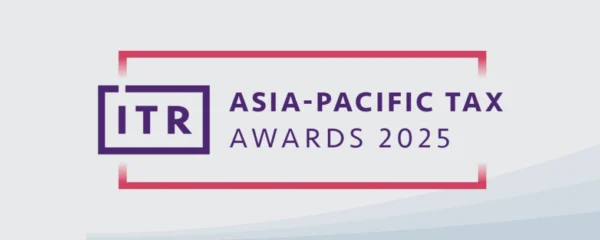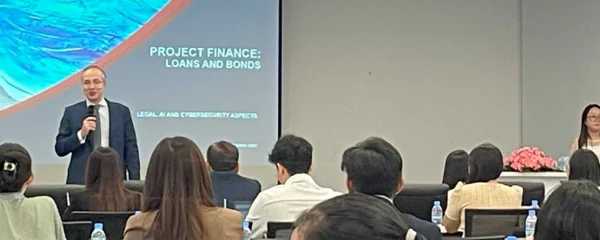
The Impact of the New Law on Telecommunication on Data Center Services and Cloud Computing Services in Vietnam
June 21, 2024
Background
Vietnam has experienced a rapid growth in its digital infrastructure, notably in data center and cloud computing services (the “DC & CC Services”).
Under Vietnam’s WTO commitments, the emerging technology DC & CC Services can fall into both computer-related services and telecommunications services categories. However, with no clear definitions provided in either the previous versions of the Law on Telecommunications or the Law on Information Technology, debates concerning the appropriate regulatory framework have endured for several years. This is especially significant considering the differing requirements imposed on computer-related services and telecommunications services, spanning from investment conditions to operational standards.
Previously, these services were often implicitly classified as computer-related services. This informal categorization led to a relatively relaxed regulatory environment, particularly in terms of foreign investment conditions and licensing requirements.
The introduction of the new Law on Telecommunications No 24/2023/QH15, scheduled to come into force on July 1, 2024, (the new “Telecommunications Law”) marks a significant shift in the regulatory landscape for these services. By providing clear definitions and establishing specific regulations, the law aims to bring much-needed clarity and coherence to the regulatory framework governing data center services and cloud computing in Vietnam.
Investment and Foreign Ownership
Under the new Telecommunications Law, DC & CC Services are defined as below:
- Data Center Services are telecommunication services that offer functions such as processing, storage, and extraction of information for users through the telecommunications network. These services are provided by leasing part or all of a data center.
- Cloud Computing Services are telecommunication services that deliver functions such as processing, storage, and extraction of information for users through cloud computing technology.
In general, computer-related services benefited from relatively unrestricted market entry conditions. In contrast, telecommunications services are often imposed more stringent requirements, mandating the establishment of joint ventures with Vietnamese partners. Specifically, for services not reliant on network infrastructure, Vietnamese partners must hold at least 35% contributed capital or 30% contributed capital (applied for ASEAN region), while for network-based services, this requirement is 50%.
To avoid potential adverse effects on foreign investment and technological progress, the new Telecommunications Law carves out an unprecedented exception for DC & CC Services. As such, despite their classification as telecommunication services, DC & CC Services are exempt from the usual market entry constraints. As a result, foreign investors should generally be able establish wholly-owned entities in Vietnam to provide DC & CC Services without facing the same ownership limitations as in the traditional telecom sector.
Compliance Requirements
Traditionally, telecommunication services are subjected to the licensing procedures. The new Telecommunications Law, on the other hand, requires companies offering the DC & CC Services to undergo registration and notification procedure.
In practice, licensing, registration or notification processes can require quite substantial efforts to achieve completion. In the absence of specific guidance on the registration and notification procedure for the DC & CC Services, it’s at the moment somewhat difficult to determine whether this represents a more relaxed approach or not.
In essence, it can be understood that while licenses usually have expiry dates, requiring periodic renewal, registration is a one-time requirement completed before operations begin, establishing legal compliance. Notification procedures, if required, are event-driven, triggered by specific regulatory events like ownership changes or service modifications.
Since procedure of registration, notification of DC & CC Services was not required under the previous regulatory regime, it has become imperative for the companies offering the DC & CC Services to initiate and complete their registration process. However, up to the date, the new Telecommunications Law does not specify the procedures and timelines for this registration requirement. As such, it would be crucial for these companies to remain vigilant and actively monitor any forthcoming guidance or directives from the government regarding the registration process.
It is noteworthy that the requirements are distinct and supplementary to the obligation to announce the quality of services, as mandated under the Law on Information Technology and the Law on Technical Regulations and Standards.
Price Determination principle
Given their classification as telecoms services, the DC & CC Services must now adhere to the price determination regulations typically applied in this sector.
While companies offering the DC & CC Service are granted the authority to set prices for their telecommunications services, this determination is guided by principles outlined in Article 58 of the 2023 Telecommunications Law. Accordingly, the prices shall be determined on the following grounds:
- Components contributing to the price at the time of pricing;
- Supply – demand relationship of telecommunication services.
The service price can be inspected by the Ministry of Information and Communications and the Ministry can terminate the application of telecommunications service prices when telecommunications enterprises impose, increase or decrease the telecommunication service prices in an unreasonable manner.
Recent Publications
Legal UpdateTax Update
Legal Update
Recent News

Andersen in Cambodia and Vietnam shortlisted for the 2025 ITR Asia-Pacific Tax Awards
Read More »
Andersen Vietnam Publishes Its Market Entry Guide for Vietnam Prepared in Collaboration With the Investment Promotion Agency of Da Nang
Read More »
Andersen in Cambodia at the Project Finance Workshop for the securities regulator!
Read More »


